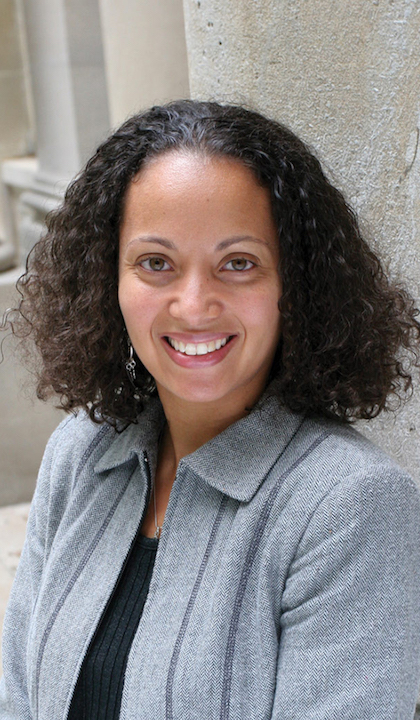Bridging the Gap: Q&A with Rhonda BeLue
 Through her work exploring the ways that families and health care systems together
influence chronic disease management, Rhonda BeLue, Ph.D., approaches health disparities
from a global, cross-national perspective. BeLue’s current research portfolio includes
a federally-funded, school-based obesity prevention program and a Fulbright Research
Award to study diabetes management in Senegal.
Through her work exploring the ways that families and health care systems together
influence chronic disease management, Rhonda BeLue, Ph.D., approaches health disparities
from a global, cross-national perspective. BeLue’s current research portfolio includes
a federally-funded, school-based obesity prevention program and a Fulbright Research
Award to study diabetes management in Senegal.
As the incoming chair in the Department of Health Management and Policy, we asked BeLue about her work, teaching and the future at SLU.
SoJust: What are the similarities and differences in the way you might approach chronic
disease management the U.S. and the global south?
BeLue: I have to incorporate and consider the influence of local culture, health care system
structure and health policies that differ across contexts. For example, in the community
that I work with in Senegal, a large majority of people are uninsured and pay for
health care expenses out of pocket. Extended families often share a household, which
requires different strategies for self-management compared to the U.S. where nuclear
family households are more the norm.
SoJust: What is your favorite thing about teaching?
BeLue: Teaching and mentoring are not only ways to prepare students for future careers;
mentoring students also serves as a learning opportunity for me. I have maintained
long-term professional relationships with many of my students, and I really enjoy
watching and advising them as they advance through their careers to serve their local
communities, and then continue on to mentor the next generation.
SoJust: What community and university partnerships are you excited about in St. Louis?
BeLue: Most of my work involves partnerships with safety-net organizations that deliver
health and wellness programs to under-served communities, such as federally-qualified
health centers. SLU has long-standing ties with community-based organizations that
work with underserved families. The College’s focus on social justice and cutting-edge
health services research will support collaboration and innovation in strategies to
eliminate health disparities among diverse communities globally.
###
This interview was originally published in the Spring 2017 issue of SoJust magazine, the College for Public Health and Social Justice's alumni magazine.